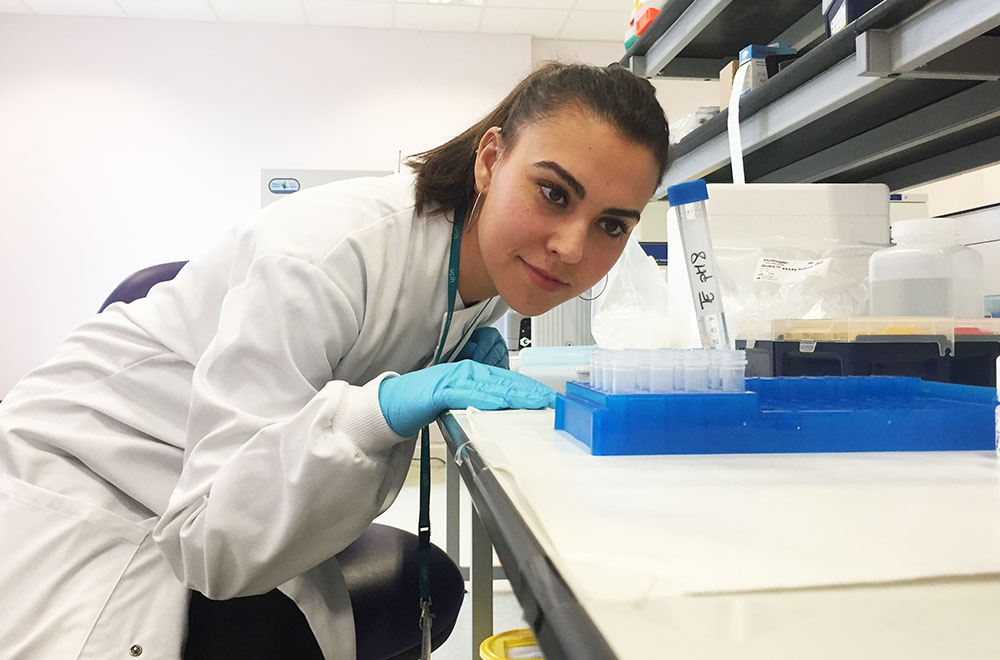Monitoring drug concentrations
In patients in whom toxic symptoms are suspected, serum AED concentrations can aid in confirming a diagnosis of AED toxicity, though clinicians should be aware that relatively low concentrations do not necessarily exclude such a diagnosis.
Contact our Therapeutic Drug Monitoring Unit
Our TDM unit provides a specialist AED TDM service for in-patients and out-patients attending the National Hospital for Neurology and Neurosurgery (Queen Square), University College Hospitals NHS Trust and Epilepsy Society. You can find a selection of contacts for the TDM unit here.
Your appointment or review
Medical appointments can be very important, but time is often limited, so it is useful to prepare beforehand. Here are some suggestions to help make the most of your appointment or review.
Sample type
The matrix of choice is serum or plasma, and although they can be used inter-changeably it is preferable to use one or the other. In most clinical settings the measurement of total serum concentrations will suffice and indeed most routine methods for measuring AEDs in sera do not discriminate between the component of drug that is free (unbound) and that that is bound to serum proteins.
Using the TDM service
The assay service is routinely available Monday to Friday, 9am-5pm. For urgent assay requests, please contact the unit in advance. The unit will report on non urgent assay requests within 3 working days of receiving the sample in the laboratory, excluding weekends or bank holidays.
A specialist AED Therapeutic Drug Monitoring (TDM) Service
Our Therapeutic Drug Monitoring (TDM) Unit will undertake the detailed pharmacokinetic investigation of individual patients with unusual clinical response to drugs during therapy or following overdose. Presently, it is the only AED TDM service in the UK which provides an analytical service for 24 AEDs currently licensed for clinical use and 2 pharmacologically active metabolites.
The Unit provides a specialist AED TDM service for in-patients and out-patients attending the National Hospital for Neurology and Neurosurgery (Queen Square), University College Hospitals NHS Trust and Epilepsy Society. Also, sample referrals are received from many NHS and private hospitals, institutions, forensic laboratories, private pathology laboratories and from veterinary practices throughout the UK. The service provision is cost effective and with rapid turnaround times.
What is Therapeutic Drug Monitoring (TDM)?
Therapeutic drug monitoring (TDM) is an area of clinical chemistry that specialises in measuring medication levels (concentrations) in patients, usually through blood samples but also through saliva samples. Because anti-epileptic drugs are among the types of drugs that can be easily under dosed or over dosed, they are particularly suitable for monitoring. The measured levels are used by the doctor to adjust each patient’s individual dosage and schedule to each patient’s individual therapeutic requirement. Thus, drug efficacy (the anti-epileptic effect of a drug) is kept to a maximum while the undesirable side effects are kept to a minimum.
Monitoring antiepileptic drugs
There are now 27 anti-epileptic drugs (AEDs) licensed for the management of patients with epilepsy in the UK. We offer a TDM service for 24 of these drugs and 2 pharmacologically active metabolites. During the past 10-20 years therapeutic monitoring of anti-epileptic drugs has served to substantially enhance the management of patients with epilepsy because drug administration (prescriptions) can be individualised.
Our Therapeutic Drug Monitoring Unit (TDM)
We provide a TDM assay service for AEDs and a pharmacokinetic consultation service (looking at how drugs distribute in the blood over time) to help individualise patient drug therapy. We carry out detailed pharmacokinetic investigation of individual patients who have experienced an unusual clinical response to drugs during therapy or following overdose.
We provide a specialist AED analytical service to the National Hospital for Neurology and Neurosurgery, University College Hospitals NHS Trust, and to many hospitals and organisation throughout the UK and from Europe.
How can the service be accessed?
Chalfont Centre switchboard number 01494 601 300
Email: TDM_Unit@epilepsysociety.org.uk
All laboratory enquiries, including patient results: 01494 601 423
Phlebotomy Services: 01494 601 345
Monday/Tuesday/Thursday 9am-2pm (Ms Leah Edwin & Ms Karen Browne)

